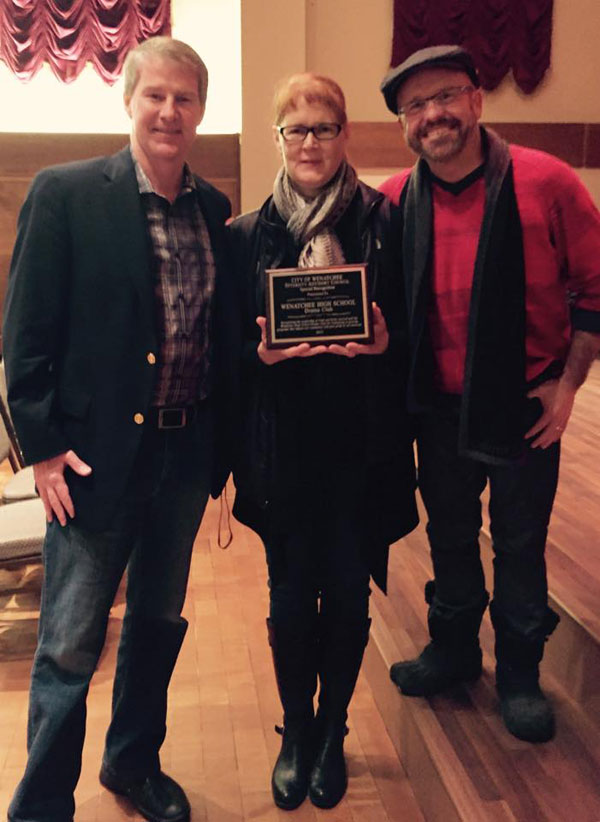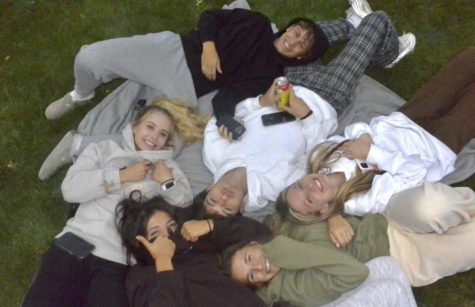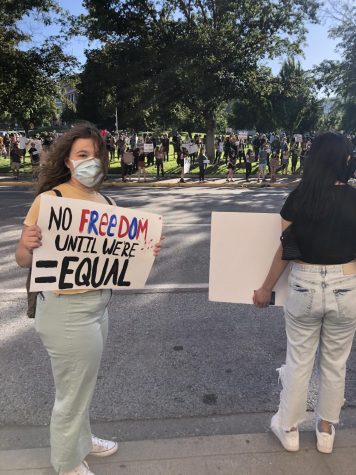Atwood receives Diversity Council recognition
Paul Atwood, director of Wenatchee High School musicals since 2001, received an award from the Wenatchee Valley Diversity Advisory Council on Jan. 17 at the Wenatchee Valley Museum on behalf of the WHS Drama Club.
The award was for “recognizing the leadership of Paul and Kelly Atwood and the WHS Drama Club for continuing to provide programs that impact our community and give pride to all involved,” Atwood said.

Wenatchee Mayor Frank Kuntz, musical artistic director Kelly Atwood, and director Paul Atwood pictured at the Wenatchee Valley Museum Jan. 17 after receiving an award from the Wenatchee Diversity Advisory Council.
According to Diversity Board member Owen Sheets, the board is “an organization dedicated to promoting diversity in the Wenatchee Valley.”
Sheets believed the award was given “to celebrate their work with the musicals for the past 10 years. They’ve done a really good job to incorporate all sorts of people and make sure all kinds of people have a part.”
Sheets also said that it was the 11th year of Atwood’s involvement with the musicals as well as the 11th year of the Diversity Board Multicultural Festival, where the award was presented.
“[It] coincided with our goal,” Sheets said. “Hairspray is about integrating a television series and accepting everyone for who they are.”
Atwood described his reaction to receiving the award as “elated.”
“I thought it was kind of special – an honor,” Atwood said. “I’m very proud and humbled that I got this award.”
While Atwood does include everyone, he doesn’t cast based on race.
“I just do whatever I feel in my heart and gut at the time, I don’t have an agenda,” Atwood said. “I just do what I think is prevalent at the time and what I have as talent. [Including all ethnicities] has never been the main purpose – it’s just the norm. It’s always been. If one person is the talented one, then that’s the right person, [regardless of] ethnicity, disability, or gender. It’s something we should just do anyway — it’s just the norm for me. We shouldn’t see color or anything. As a director, I just see the talent [and] where I can include people. I’m just doing what I think is normal, what I’ve learned all my life. I’ve never seen black or white.”



